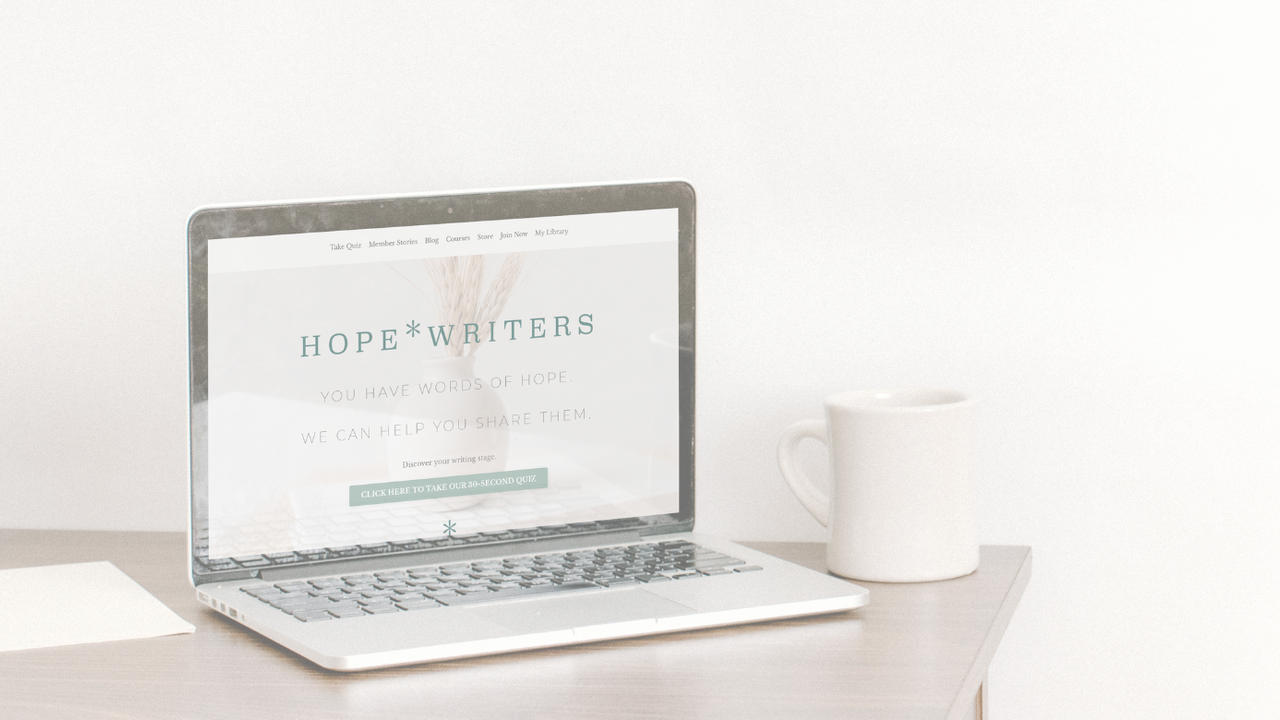If you’re a writer, you’re most likely also a reader and collector of great quotes. Have you ever come across the perfect quote from another author that you would like to include in a piece of your writing? Maybe you’d like to share a quote on social media or include it in a newsletter for your read...
Are you a writer struggling to make progress? Do you spend hours researching how to get published instead of actually writing? Hope*writers is here to help!
We put together The hope*writers Summit with you in mind. We’ve brought together 15 of the best authors and publishing professionals to teach ...
Are you a writer thinking about writing your first book? Without previous publishing experience, first-time authors can feel overwhelmed by the unknowns that accompany the publishing process. It’s easy to focus solely on what we know: our message and how to weave it into a compelling story. But, the...
What does it take to become a New York Times bestselling author? Annie F. Downs, author of multiple books and one New York Times bestseller, believes it takes perseverance and a belief in your calling as a writer. Annie’s path to publication got off to a rocky start filled with numerous rejection le...
As writers working in the internet age, we have the unique opportunity to publish our work on any number of platforms. From social media to blogs to webinars, e-books, and self-publishing sites, we have the power of choice at our fingertips. These publishing opportunities offer great flexibility, bu...
As a ghostwriter, nonfiction author, and novelist, Shawn Smucker has a lot of experience collaborating with others. In his own work, he makes it a regular practice to invite others into the editing process by asking beta readers to read his manuscript before the final draft is written.
In an inter...
When an author goes the route of traditional book publishing, it can be a relief to have publishing team members lend their expertise to the process. However, those who haven’t been through this process may not be aware how much of the design process is guided by publishing professionals rather than...
Author and publisher Maria Dismondy released a new book in 2020 called Sunny Side Upbringing: A Month-by-Month Guide to Raising Kind and Caring Kids. Cardinal Rule Press will open for picture book submissions on November 1, 2020. More details can be found at CardinalRulePress.com.
When elementa...
A published book is often seen by writers as the pinnacle of the craft. For many of us, our dream of becoming a writer began with reading good books. Perhaps you’ve imagined your name on a cover or looked for where your book would sit on a library shelf.
Writers love to spend time on content creation. Because of our focus on the art of writing, we may initially find the world of publishing confusing and mysterious. It can be challenging to find a clear explanation of the process of book publishing without chasing rabbit trails across the internet.
...The growth of the internet as a publishing outlet has offered many writers the opportunity to share their stories in ways that were not possible before; however, this gift can be a double-edged sword. Because of the proliferation of content online, it’s easy for a writer’s voice to be drowned out by...












